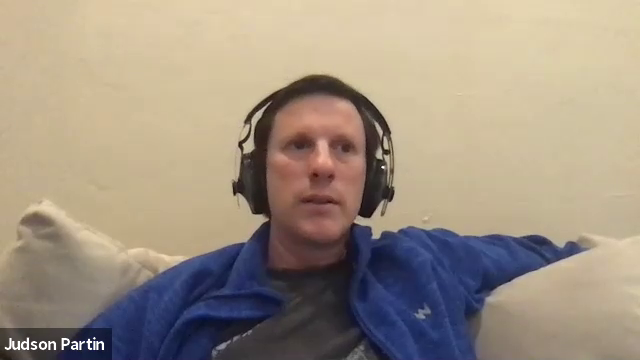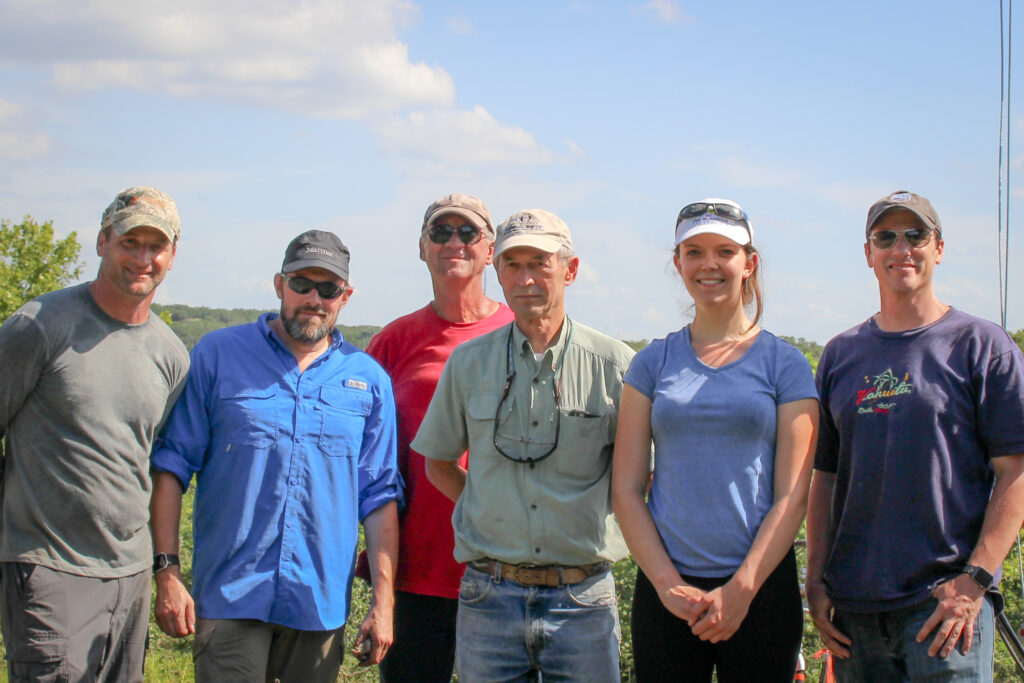
On March 13, 2020, like most labs at The University of Texas at Austin, the Jackson School’s Analytical Laboratory for Paleoclimate Studies powered down instruments, stored samples and suspended operations. The lab’s research team gathered what data they could and took their work online.
For Jud Partin, a UTIG research associate who leads the research team, suspending the lab has meant a hiatus in their hunt for geological clues about past climate change. The team of four researchers, however, are relatively fortunate.
“There’s still a ton of data to work through from home,” said Partin.
The UT Paleoclimate Team
The lab’s instruments are designed to deduce past ocean and weather conditions from ancient corals and limestone deposits. The research team uses the data they gather to recreate ancient climate, in some cases tens of thousands of years ago.
“We meet once a week online to talk about papers and discuss data,” said Partin. “I made a joke the first couple of times about how the instruments were doing, but that quickly got old, so now we just talk about science.”

In March, Allison Lawman, one of the lab’s grad research assistants, was among the first Jackson School students to successfully defend her PhD over Zoom. The experience, said Partin, was incredibly positive.
“A lot of people who wouldn’t have normally seen a PhD defense got to see her in action, which is pretty awesome,” he said.
Another of the lab’s student researchers, Joseph Arias, is due to graduate this summer from the Jackson School with a degree in geology. Under normal circumstances, Partin would be reviewing undergraduate candidates to take his place.
However, hiring a lab assistant isn’t something you can do remotely.
“You want to show candidates the lab and instruments, show them the samples, give them a taste of what they’ll be doing all day and see if they’re still interested,” said Partin.
“Until they see it all in action – you can’t really expect them to know if they’ll want to work here.”
Normally, the incoming student researcher would overlap with Arias and Lawman, who along with Rob Domeyko, another UTIG grad research assistant, would train the new student to use the instruments.
“We’ll hire someone when it’s safe to go back, but by then Joseph and Allison will have gone, so that part of the knowledge transfer sadly won’t occur.”
Home priorities
Like many academics, Partin has to balance many duties, such as running a research group, writing papers, supervising students, and teaching a class.
The class he teaches is an advanced statistics class for graduate students, which lends itself well to remote learning because much of it is based on MATLAB and math. In fact, the class had already introduced Zoom meetings in 20189 as a way of bringing together students based at different UT campuses.
For this particular class, the transition to remote learning has been relatively smooth, but there are still reminders that these are far from normal times.
“Max interrupted me a couple of times yesterday. I had to stop class and, apologize. ‘What is it buddy, what do you need?’ Suddenly, everyone’s laughing because this four year old’s bursting in going ‘Papipy! Papipy! I want a cookie’. Fortunately, everyone’s quite forgiving these days.”
Max is Partin’s four year old son. Like others in their position, Partin and his wife have added homeschooling duties to their daily routine. Showing a four old the necessary attention to teach him what he’d learn at school, however, is a huge commitment even without both parents juggling a full time careers.
“We’re trying to do some lessons but all he wants is TV show, video, TV show and so on.”
The couple limit screen time as much as possible, but they still have to find ways to fill the child’s time productively. During the first weeks of self-isolation, the couple found plenty of energy to come up with activities, and lessons, but in the face of a crisis without an obvious end, that energy quickly dwindled.
“We were all charged up in the beginning, but now my wife and I, we’re exhausted trying to keep up with the kid and everything,” said Partin.
“When this is all over, I think people are going to appreciate teachers a whole lot more. Teachers, first responders, and medical people, hopefully they get a whole lot more love.”
